This article was supposed to be about the European Union’s obligation to give visas to Russians trying to escape mobilization. I was seeking to find stories of men that do not want to be forced to kill Ukrainians because of their nationality, or forced to die in the first rows of Russia’s poorly prepared army. I believed and still believe in their right to live in a civil and peaceful society. But, instead, what I kept stumbling over were news about Ukraine’s heavily damaged thermal plants and power stations. I see pictures that seem to be from a previous century in which people are getting warm near a bonfire and candles. In such a devastating reality, I do not feel like having a moral right to describe the difficulties that Russian refugees are going through. However, as I only have a deep connection with Russian actuality, not Ukrainian, I can tell what is happening in my Motherland and to my family that stays there.
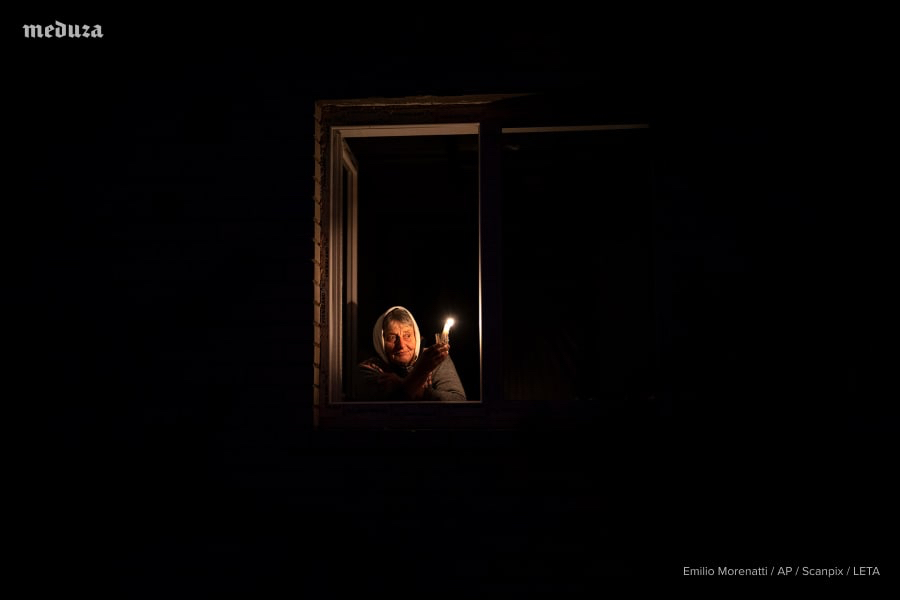
Yet, I must disclaim that I am not trying to compare the difficult situations in which Ukrainians and Russians are finding themselves nowadays. I am definitely not depreciating the hardship of the first ones. I acknowledge that the lives of Ukrainians are much more at risk. So, with respect to the victims of the war, let me tell you the issues that have been recently going through the minds of Russians.
To start with, the most disturbing news was an announcement of different conditions across the entirety of Russia. Under Putin’s new law, the four occupied regions (Donetsk, Luhansk, Kherson, and Zaporizhzhia) are now under martial law. Some of the restrictions mean that citizens are deprived of freedom of movement, they can be required to resettle to safer areas, as well as forced to give away property (like jeeps, for instance) for the needs of the army. In regions close to the Ukrainian border (annexed Crimea, Belgorod, etc.) there is a “medium alert mode.” This part of the decree includes special security for infrastructure like airports, administrative buildings, airports, and many more. It must be noticed that Kursk, which is under this mode already, started building lines of defense in case Ukraine forwards.“Medium alert mode” also implies limits of entering and exiting a region and “monitoring the work of data centers,” which may mean that the authorities have a right to access all private information on devices.
Other 18 Central and Southern regions are under “heightened alert mode,” that among other basic points, includes that security forces have a right to stop and search any vehicle. Finally, “basic alert mode” is in place in the rest of Russia (Povolzhie [including my home Republic of Tatarstan], Ural, Siberia, and the Far East). This measure allows local authorities to increase protection of different infrastructure and public transport.
The conditions of these modes are blurry and can include many restrictions. What could “activities to protect the population and territories from extreme natural or technogenic situations” even mean? Such a vague wording leaves lots of space for local governments’ amateur activity. But what is clear is that the whole variety of modes is another example of Putin’s Newspeak. I have already written about frightening similarities between today’s Russia and George Orwell’s novel 1984. Now, among “special operation” and “partial mobilization” there is “medium/heightened/basic alert mode.”
What also disturbs and confuses is falling fighter airplanes. On October 17th, a SU-34 airplane crashed on a nine-story apartment block, killing 13 and injuring 19 civilians in a Southern Russian town, Yeisk. One of the versions concludes that the plane was doing a training flight when seagulls got into the turbines, which then caused the accident. While the pilot managed to save his life and catapult, the full load of ammunition that was in the plane caused a huge fire in which many people lost their homes and lives. Such an extremely surprising event shook the whole country.
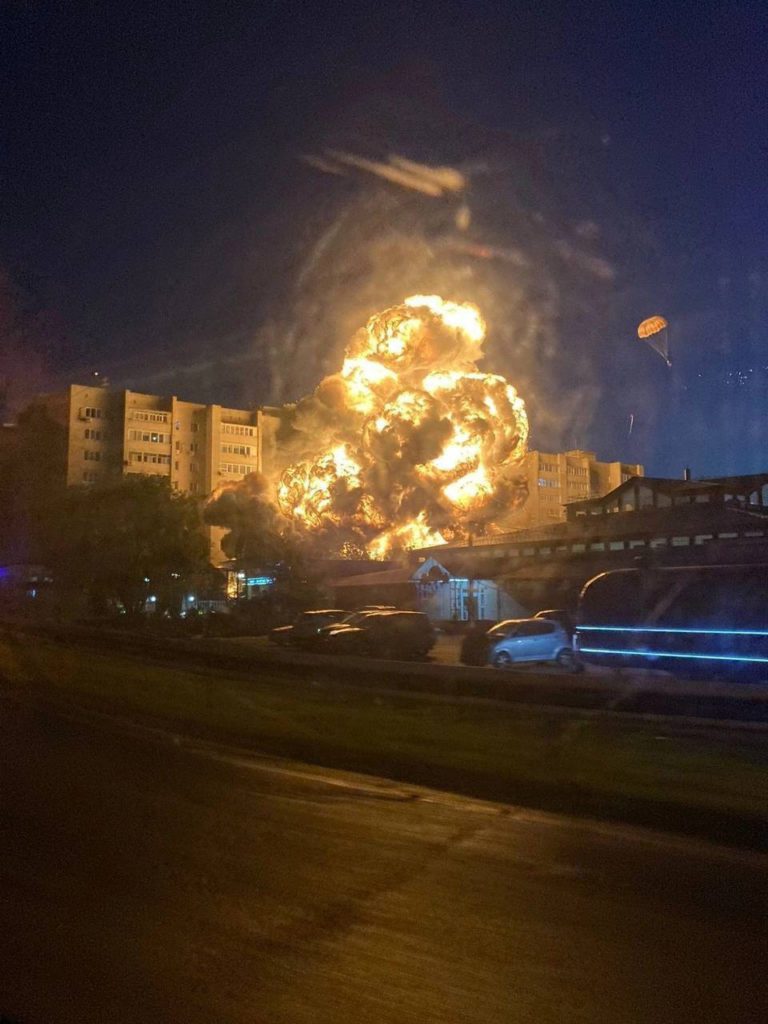
Retrieved from https://t.me/varlamov_news
After several days, when everyone had just breathed out, another fighter plane crashed into a two-story house in Siberia. As the investigative committee assumes, the pilots lost consciousness as a result of lack of oxygen. They are the only victims of this accident. Surprisingly, Russian authorities have not yet made Ukraine a scapegoat yet, as they are bound to do. At the same time, the unknown origin of these two accidents brings even more suspicion and space for conspiracy theories.
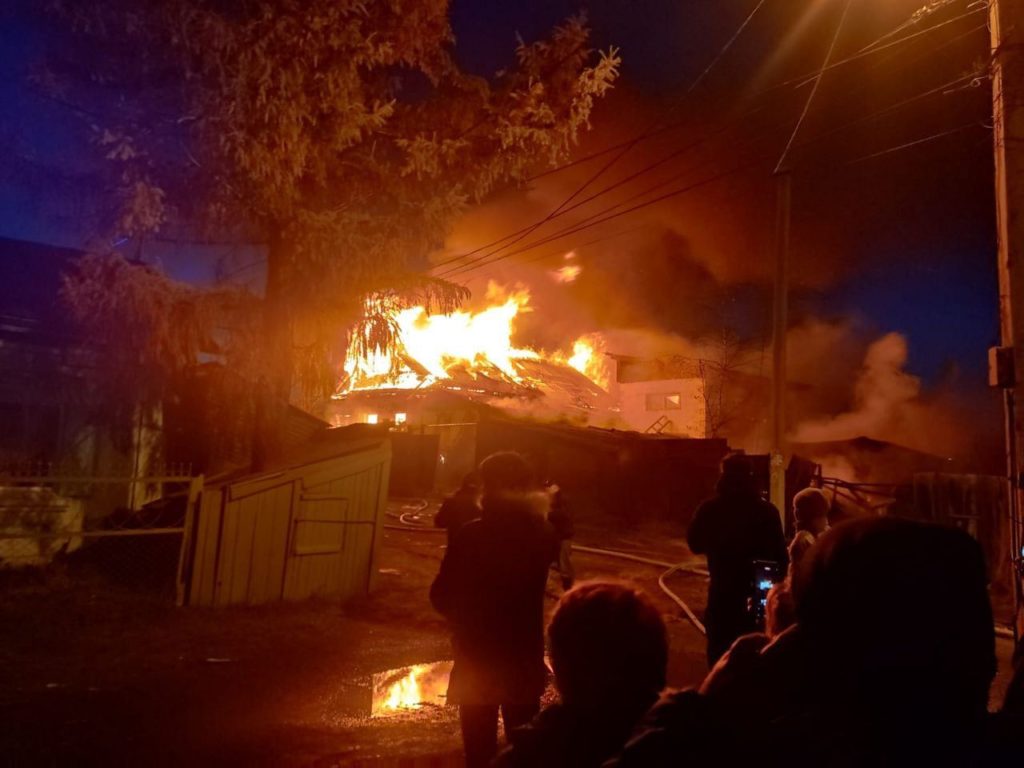
The establishment of the “modes” and plane crashes are happening at the same time as the still ongoing draft. To remind you, on September 22nd, Vladimir Putin announced so-called “partial mobilization” for 300,000 men with military experience. Of course, there have been numerous cases of drafting men from completely non-military fields. The lack of any preparation for military activity put these recruits at risk. For instance, an IT specialist who, according to Putin’s law, had draft deferment, but still was forced to go to the war front. 20 days later, his relatives got a notification about his death. With lots of incidents like this, the government reported 260,000 mobilized males. Where the Kremlin is going to get the rest 40,000 men can be defined as Russian roulette. Although some regions, including Moscow, have already announced the implementation of the plan, nowadays, every man is still at risk. According to the law, only the president of Russia has the power to end the draft, so right now, the roulette is still on, and it is still up to the random will who will be sent to death.
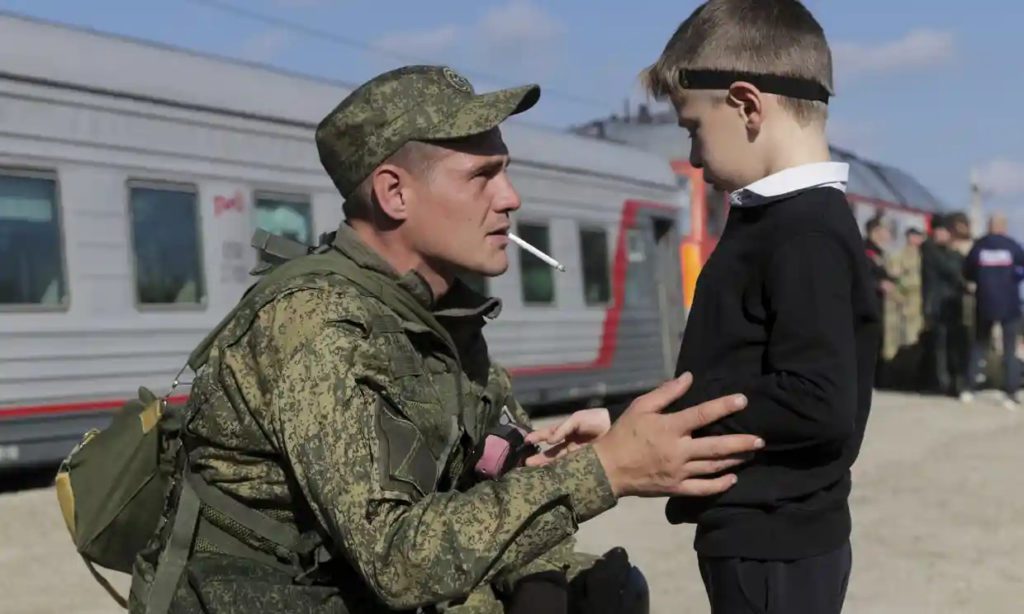
While, in some regions, mobilization is “officially completed,” authorities of my home republic, Tatarstan, are still sending draft papers to males. My far relative, great uncle, was among the men who received the order to the army. Probably, the last time I saw him was at his wedding. I remember being around 10 years old, all excited to attend my very first wedding. I still have his and the bride’s smiles imprinted in my memory. Nowadays, my uncle is 36 years old, already divorced, and living in Tatarstan. The draft paper was not a big surprise for him and the rest of our relatives. But what shocked my nuclear family was his lowliness and readiness to comply. My parents, sister, and I are probably the only ones who did not understand his behavior and choice. He could just refuse to sign the order, and he would not receive any punishment for that. But people in his environment, including my grandparents, think the opposite. “What is he, the Motherland’s traitor? He cannot defy the law and be a disgrace,” they exclaimed with sincere determination in their voices. This is a clear example of the Soviet-formed mindset: the whole idea of sacrificing one’s life for the sake of the Motherland. With such an attitude, nobody wants to hear or understand that the uncle will likely not come home anymore, or only as a cargo 200 in a zinc coffin.
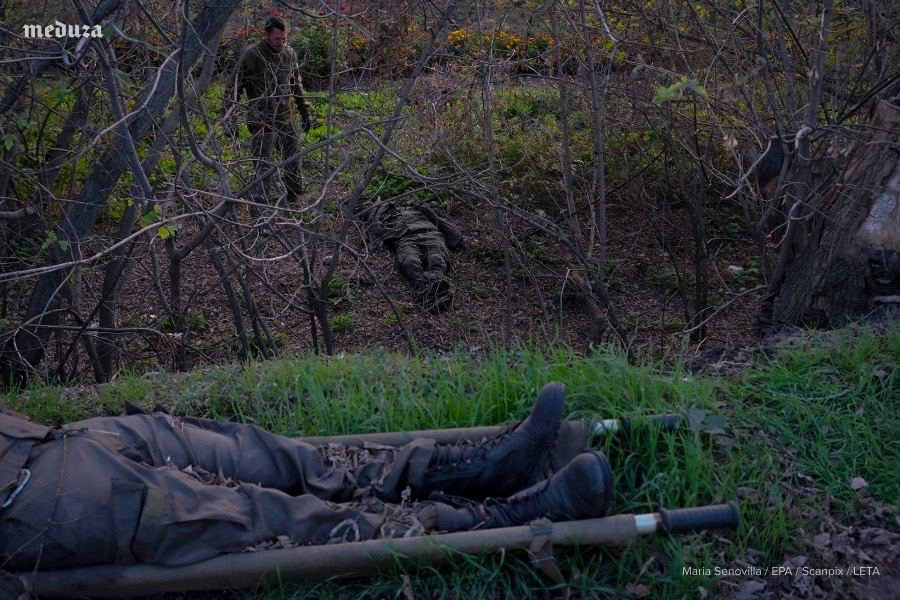
The scariest thing about the mobilization is that its limits are as blurry as any other Russian law. A man cannot know if his name is on the list that local authorities must check. One of the very few ways to acknowledge it is by trying to leave Russia. If customs let a male cross the border, he is likely to stay safe during the current wave of mobilization. The magical list of men that can be drafted may consist of more than a million rows and columns, as recently Russian journalists managed to get to know. This number, 1 million, only proves that the official quantity, 300,000, can mean only the first wave. It is hard to say if there is going to be a second and a third one, but the Kremlin’s actions are inscrutable.
Such unknowingness made the planning horizon for Russians a week short. Nobody knows what to expect: the Kremlin’s pacification or escalating aggression, martial law or the regime’s collapse, blue sky above or nuclear mushroom. As for me, this everyday anxiety makes it risky and almost impossible to plan a family meeting during the Christmas break. My parents, sister, and I have agreed to meet in Istanbul, where my sister lives. But what if my father’s name is on that list, so he will not be able to even leave Russia? What if Putin closes the borders so that even my mother will have to stay in the country? Or what if the most terrible out of all three happens and my father has to be mobilized? These are not hypothetical ifs; they are the most possible and more or less predictable circumstances that may stop my family from the reunion for the magic of the New Year celebration.
Of course, it might be easier for me just to fly directly home to Russia. However, my parents are dreaming of getting out of this hell called Russia of the modern days. “It is just mentally and morally hard to stay in this atmosphere of militarism and fake patriotism,” admits my mother. Indeed, she often tells me about her clients’ pro-war opinions and attitudes. Even my parents’ best friends use propagandistic slogans and arguments when mom and dad are trying to open their eyes. My parents, as well as thousands of other anti-Putinists, feel left out and misunderstood in the massively militaristic and imperialistic society. I understand their willingness to breathe some air of freedom, at least for 10 days.
The above are events, worries, and reasons for anxiety that many Russians are forced to experience daily. Mobilization, possible martial law, and short planning span are circumstances that create a feeling of uncontrol of one’s own life, a feeling of sitting in the backseat, while some old and out-of-mind men are driving millions of people to the scary future. Even I, who already escaped the evil empire, still feel burdened and kept in chains. My constant residence outside of Russia does not make me care less. I feel safer but not less anxious than my parents and those who continue living in the country.
Featured image by: meduza.io







